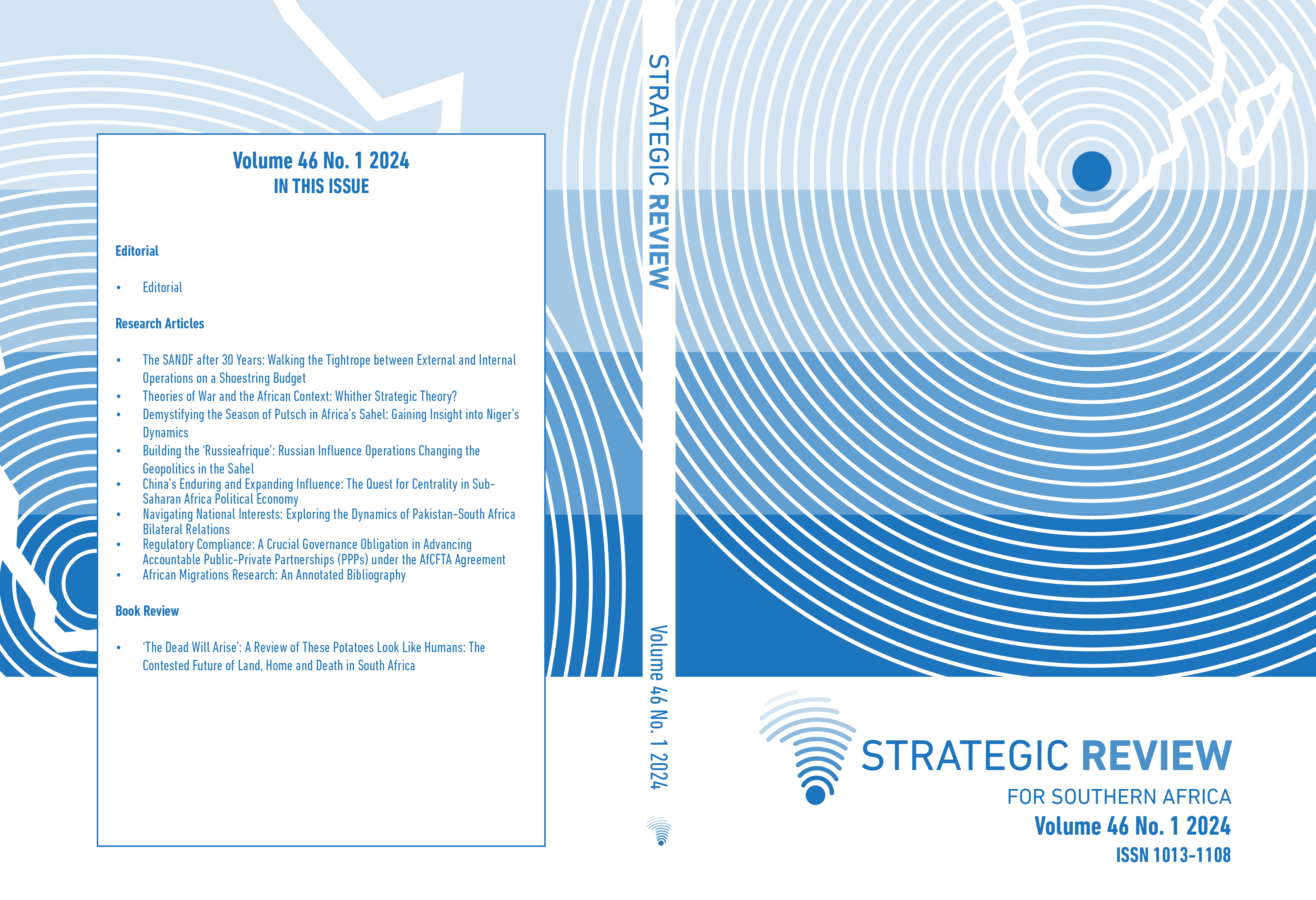Regulatory Compliance: A Crucial Governance Obligation in advancing Accountable Public-Private Partnerships (PPPs) under the AfCFTA Agreement
DOI:
https://doi.org/10.35293/srsa.v46i1.4556Keywords:
African Continental Free Trade Area (AfCFTA), ethics, governance, Public-Private Partnership (PPP), regulatory compliance, service deliveryAbstract
The African Continental Free Trade Area (AfCFTA), once fully implemented, provides the basis for Public-Private Partnership (PPP) projects to become the most appropriate means to facilitate and contribute to meeting the economic development goals of individual African states. However, the agreement emerges against the backdrop of chronic institutional governance failures in matters of public resource management, which continue to affect the service delivery mandate of governments in developing states. Therefore, any such project needs to guarantee accountable, efficient, effective, and result-driven outcomes. This is to safeguard against such initiatives not depriving citizens of benefitting. The article presents regulatory compliance as a crucial component in the role of private and public entities to assist governments to realise developmental goals through suitable joint venture projects.
A case study analysis presents the causal link between governance failures and incidents of governance interventions on such development instruments. The case study approach is appropriate due, largely, to its interpretive and inductive qualities. It uses South Africa as the primary real-life setting to appraise the issue, particularly as certain findings from the Judicial Commission of Inquiry into Allegations of State Capture, Corruption, and Fraud in the Public Sector, including Organs of State, expressed an opinion on instances where joint projects were to ensure that benefits equally accrue to the citizenry. An ethics theoretical framework facilitates the exploration of the subject matter, more so, as regulatory compliance advances institutional integrity and ethical practices. Findings made also attest to certain limitations in matters of governance oversight. For example, the implementation of regulatory compliance strategies is a concerning part of project governance. Conclusions uphold that even with the extensive nature of regulatory compliance requirements, along with perceptions of the burdensome nature aligned to it, compliance management remains a vital governance component.


